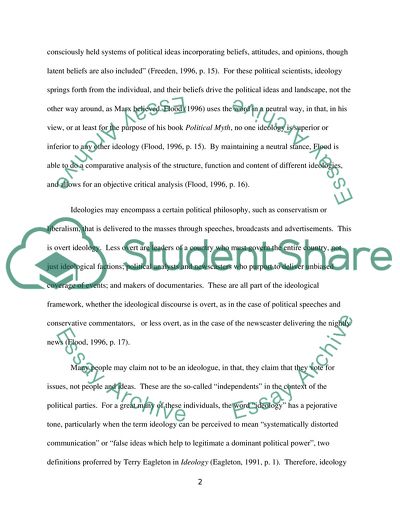Cite this document
(Ideologies and Political Theory Essay Example | Topics and Well Written Essays - 2750 words, n.d.)
Ideologies and Political Theory Essay Example | Topics and Well Written Essays - 2750 words. Retrieved from https://studentshare.org/politics/1746028-what-is-distinctive-about-political-myth-as-a-form-of-ideological-discourse
Ideologies and Political Theory Essay Example | Topics and Well Written Essays - 2750 words. Retrieved from https://studentshare.org/politics/1746028-what-is-distinctive-about-political-myth-as-a-form-of-ideological-discourse
(Ideologies and Political Theory Essay Example | Topics and Well Written Essays - 2750 Words)
Ideologies and Political Theory Essay Example | Topics and Well Written Essays - 2750 Words. https://studentshare.org/politics/1746028-what-is-distinctive-about-political-myth-as-a-form-of-ideological-discourse.
Ideologies and Political Theory Essay Example | Topics and Well Written Essays - 2750 Words. https://studentshare.org/politics/1746028-what-is-distinctive-about-political-myth-as-a-form-of-ideological-discourse.
“Ideologies and Political Theory Essay Example | Topics and Well Written Essays - 2750 Words”. https://studentshare.org/politics/1746028-what-is-distinctive-about-political-myth-as-a-form-of-ideological-discourse.


